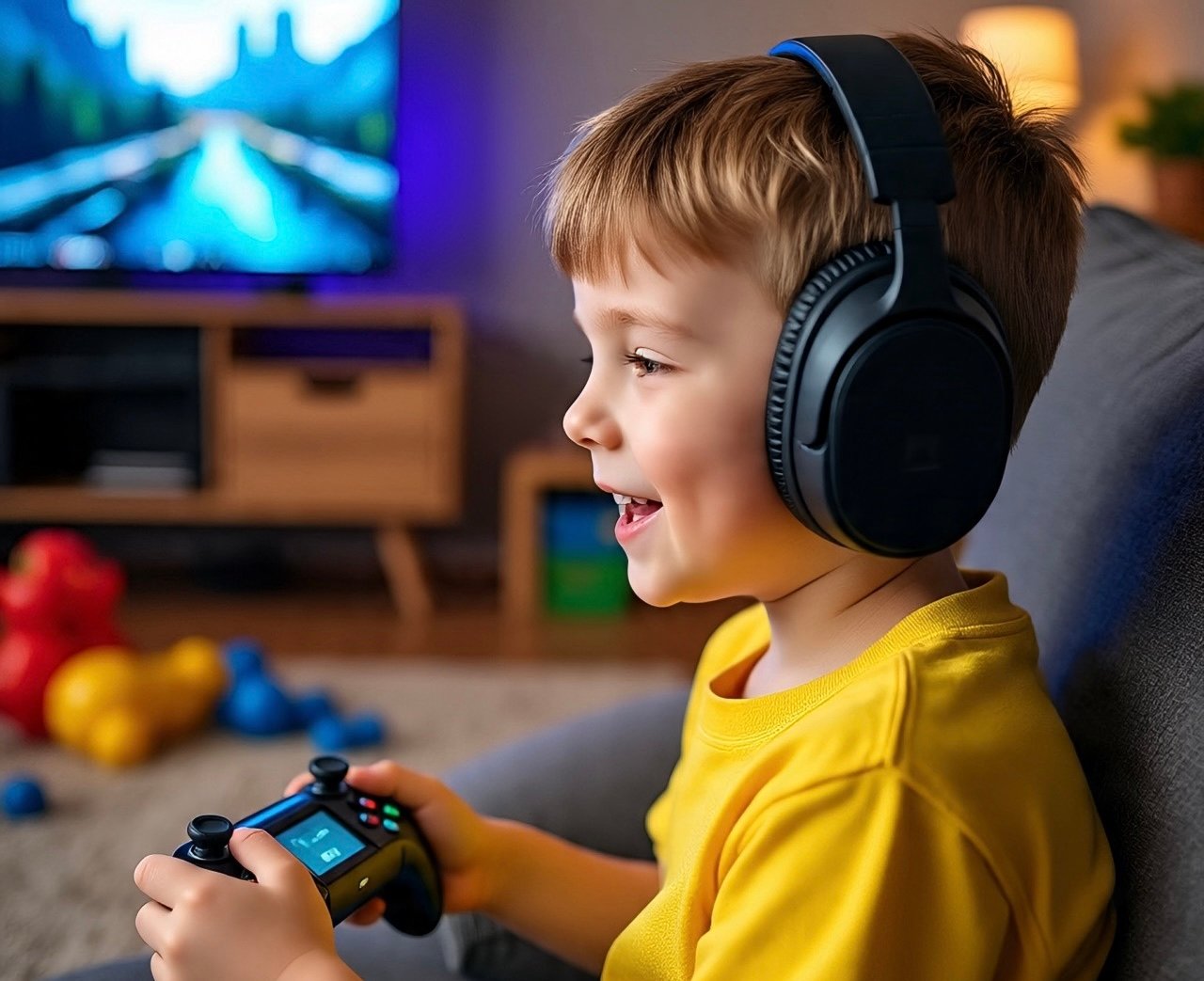For years, parents feared video games could harm children’s brains. Now, new science offers a surprising and positive perspective.
A large-scale study of nearly 10,000 children found that kids who play more video games show measurable gains in intelligence.
These findings challenge the traditional belief that screen time is harmful, suggesting that interactive gaming may actually boost cognitive development.
⸻
🧠 The Study at a Glance: Nearly 10,000 Children, Tracked Over Two Years
Researchers from Sweden and the United States tracked 9,855 children aged 9 to 10 for two years as part of the ABCD Study.
They assessed IQ through tasks measuring reading ability, memory, and spatial reasoning. The results were published in Scientific Reports.
Key Findings:
• Kids who played video games gained 2.5 IQ points over two years.
• Children who watched TV or used social media showed no significant IQ change.
• The study controlled for genetics, income, and parental education to ensure accuracy.
⸻
❓ Q&A: How Can Video Games Improve a Child’s Intelligence?
Q: What makes video games different from other screen time?
A: Unlike passive media, gaming demands active participation—planning, reacting, problem-solving—all of which stimulate brain development.
Q: Which parts of the brain are engaged during gameplay?
A: Video games activate regions tied to executive function, working memory, decision-making, and visual-spatial awareness.
“Intelligence is not fixed,” says lead neuroscientist Dr. Torkel Klingberg. “Our findings suggest gaming can help improve it.”
⸻
📺 Not All Screen Time Is Created Equal: Gaming vs. TV and Social Media
Interestingly, kids who spent equal time watching TV or using social media did not show any IQ gain—positive or negative.
This implies that the quality of digital interaction matters more than the quantity of screen time.
Gaming, with its challenges and interactivity, engages the brain in ways that passive entertainment simply cannot.
⸻
🎮 What Types of Games Offer the Most Benefit?
The study did not specify game genres. However, games involving strategy, memory, and logic are likely the most beneficial.
Games that may improve cognition include those that:
• Challenge kids to plan ahead and adapt strategies
• Require fast decision-making in dynamic environments
• Involve multitasking and problem-solving under pressure
⸻
⚠️ Important Note: This Doesn’t Mean Unlimited Gaming Is Good
Despite positive results, this is not a license for endless screen time.
The study focused only on IQ—not emotional health, physical activity, or academic performance.
Balance remains essential. Kids also need sleep, outdoor play, social time, and offline learning for well-rounded development.
⸻
💬 Q&A: What Parents Need to Know
Q: Should gaming replace reading or traditional learning?
A: No. Games can supplement learning but should never replace books, real-world interaction, or schoolwork.
Q: Are all kids affected the same way?
A: No. Outcomes vary based on age, learning style, game type, and how the child engages with gaming.
Q: Is 2.5 IQ points a significant increase?
A: Yes. Across thousands of children, that’s a statistically meaningful and impactful cognitive improvement.
🕹️
Changing the Conversation: Gaming as a Brain Tool, Not a Threat
For decades, video games were blamed for attention issues, aggression, and poor learning outcomes.
Now, research is helping shift this narrative toward a more balanced, science-driven view.
Games, when chosen wisely and used in moderation, may become valuable tools in a child’s cognitive development.
✅
Tips for Parents: Making the Most of Gaming
- Set healthy time limits—balance gaming with sleep, school, and outdoor play
- Choose wisely—look for creative, strategic, or educational games
- Co-play with your child—turn gaming into a bonding and learning experience
- Talk about their games—ask what they’re playing and why
- Avoid bedtime gaming—screens can affect sleep quality
❓
FAQ: Video Games and Child Intelligence
1. Do violent games offer the same benefits?
The study didn’t evaluate game content, so effects of violent games remain unclear.
2. Can gaming help children with ADHD?
Some research shows games may improve focus, but more specific studies are needed.
3. Is this research final?
No. It’s a promising start, but more research is needed to fully understand long-term impacts.
📘
Conclusion: Smart Play May Lead to a Smarter Brain
This new research suggests a powerful insight—video games, when used properly, may help kids become smarter.
By promoting strategic thinking, memory, and quick decision-making, gaming offers real cognitive value, especially when paired with a healthy lifestyle.
In today’s digital world, understanding how technology shapes young minds is more important than ever.
If used thoughtfully, video games could be more than just entertainment—they could be a tool for smarter futures.




